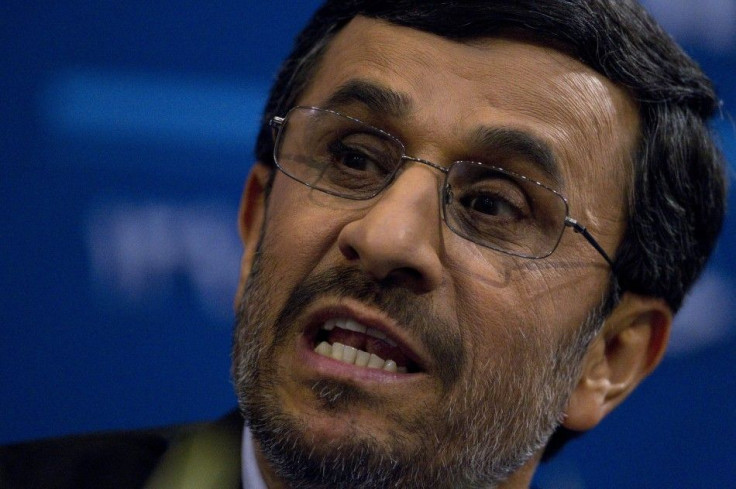Half of Americans Would Bomb Iran if Sanctions Fail: Poll

Half of all Americans think that bombing Iran is necessary to stop the country's burgeoning nuclear weapons program if sanctions fail, according to a new Quinnipiac poll. And 60 percent of Americans think that economic sanctions will fail.
The poll was taken in response to an International Atomic Energy Agency (IAEA) report published earlier this month that indicates that Iran is much closer to developing a nuclear weapon that previously thought.
The agency has serious concerns regarding [the] possible military dimensions to Iran's nuclear program, the report said.
After assessing carefully and critically the extensive information available to it, the agency finds the information to be, overall, credible. The information indicates that Iran has carried out activities relevant to the development of a nuclear explosive device.
Despite Iran's insistence that the report is baseless and that uranium refinement is only for power plants, the IAEA report has escalated talks about a pre-emptive strike to destroy Iran's nuclear facilities.
Some world leaders, especially Israeli Prime Minister Benjamin Netanyahu, consider a nuclear Iran a direct threat to international security. Israel has held talks about destroying nuclear facilities, but Netanyahu's cabinet has shot down the idea.
Nonetheless, an explosion at an arms depot in Iran last week, during which General Hassan Moqaddam, the man many describe as the architect of Iran's nuclear weapons initiative, was killed has been coyly blamed on Israeli spy agency Mossad.
The Quinnipiac poll showed that 50 percent of Americans would be in favor of a military strike on Iran if economic sanctions alone couldn't dissuade President Mahmoud Ahmadinejad or Ayatollah Khamenei from halting the program, compared to 38 percent who opposed a pre-emptive strike.
Americans are very concerned about the development of an Iranian nuclear program and don't think the current policy of economic sanctions is effective, said Peter A. Brown, assistant director of the Quinnipiac University Polling Institute. Voters are not yet to the point that they want the U.S. military to stop it, but 50 percent say that if the sanctions eventually prove to be ineffective then they would support the use of force.
Despite the statistics, the U.S. government would like to avoid an Iranian conflict for as long as possible. U.S. Defense Secretary Leon Panetta said earlier this month that a strike would be a bad idea that has unintended consequences.
It could have a serious impact in the region, and it could have a serious impact on U.S. forces in the region, he said. And I think all of those things... need to be carefully considered.
© Copyright IBTimes 2025. All rights reserved.





















